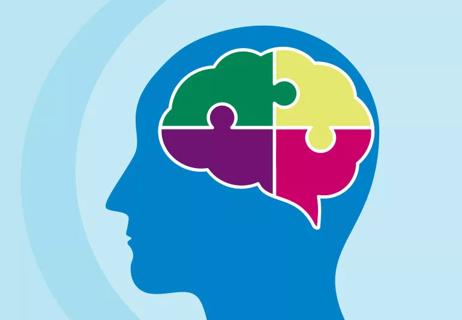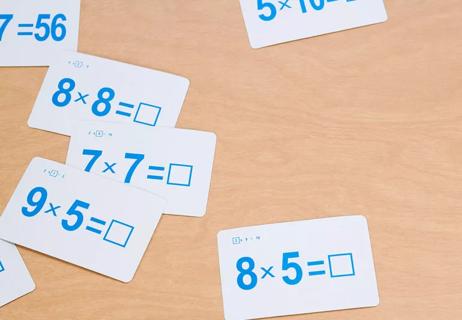And 12 easy tips that can pay off big

Ever meet someone and forget his or her name minutes later? Or maybe you attended a lecture and couldn’t remember key details by the time you got home.
Advertisement
Cleveland Clinic is a non-profit academic medical center. Advertising on our site helps support our mission. We do not endorse non-Cleveland Clinic products or services. Policy
Nearly everyone experiences these problems from time to time. You might worry that they’re a sign your memory is fading. Instead, you might not have concentrated well enough to store the information.
“For the majority of people, it’s not a memory problem per se, but it’s more of a concentration or organizational problem where they’re not getting the information initially or they’re not processing it correctly in the first place,” says Aaron Bonner-Jackson, PhD, a neuropsychologist with Cleveland Clinic’s Lou Ruvo Center for Brain Health. “They say they have a memory problem when in fact trouble with concentration, focus or organization is the underlying issue.”
However, identifying factors that steal your focus and developing skills to improve your concentration potentially can pay big dividends for your memory.
Attention is an essential, first ingredient for good memory. After all, if you can’t concentrate on new information or stimuli you receive, you’ll be unable to process and store it in your memory.
Your ability to concentrate can vary greatly, and like everyone, there will be times when you just can’t find your focus. But there are certain factors that contribute to this process. For example, by giving your attention to multiple tasks instead of one, you might limit your ability to retain the information you need most.
Advertisement
If you’re trying to do two or three things at once and you’re not really focusing on any of them very well, you really won’t process the information well enough to store it, so when you go to retrieve it, it’s gone.
A number of other factors can adversely affect your ability to concentrate, including inadequate sleep, a poor diet, dehydration, hunger and physical inactivity. Certain medications, such as sedating antihistamines, certain overactive bladder drugs, painkillers and others, have been associated with impairments in concentration and memory. Moreover, poor concentration is a hallmark sign of attention-deficit disorder, is a common feature of mood disorders such as anxiety and depression, and it may occur with medical problems like diabetes, chronic pain and thyroid dysfunction.
“We know that with hypothyroidism, for example, people tend to feel sluggish and can’t pay attention as well,” Dr. Bonner-Jackson explains. “There are a variety of medical issues that could potentially affect your concentration.”
So, how do you improve your concentration? One way is by changing your behavior and setting yourself up so that you can process information well. Along those lines, concentrate on one task at a time, and devote your full attention to it. If necessary, take frequent breaks. “You don’t want to tax yourself so much that you start to lose focus and make mistakes,” Dr. Bonner-Jackson adds.
Another is by modifying your environment to minimize distractions that erode your attention. So, when you really need to focus on something, turn off the television, computer and cellphone, and create a calm, quiet environment. “Every time you switch tasks, whether intentionally or because of a distraction, there’s a cost,” Dr. Bonner-Jackson says. “Every time you do that, you’re whittling away at your attentional store, so the more you can focus on one thing, the better.”
Furthermore, address any medications or medical conditions that could be sapping your concentration. And consider meeting with a practitioner of cognitive rehabilitation therapy, Dr. Bonner-Jackson advises. Among other things, this treatment can train you in ways to boost attention and benefit your memory, such as visualizing the information you hope to retain.
“Visualization can be a really powerful tool, because the more ways you can process information, the more likely you are to remember it,” he adds. “You can go back in your mind later on and actually look through your memory for it.
“Through certain habits, you can improve your concentration,” Dr. Bonner-Jackson continues. “The thought is that if you can change the way you process information, that can have downstream benefits for your memory.”
Advertisement
Here, Dr. Bonner-Jackson offers 12 ways you can boost your concentration and manage factors that affect it to help you store and retrieve information more effectively:
Advertisement
This article originally appeared in Cleveland Clinic Men’s Health Advisor.
Advertisement

Sign up for our Health Essentials emails for expert guidance on nutrition, fitness, sleep, skin care and more.
Learn more about our editorial process.
Advertisement

When the familiar suddenly feels unfamiliar, it could be nothing — or something worth noting

Decreasing estrogen levels can cause brain fog, but symptoms of dementia are different and more pronounced

Use a gentle, nonjudgmental tone, focus on prevention and reassure them that age-related memory issues can have a variety of causes

The brain areas that process smell are closely connected to those responsible for our memories and emotions

Our collective misremembering of events comes from a surplus of false memories

Cardio is great for improving cognition, but strength and balance training are just as important

The difference between normal aging and issues that affect your independence

Those nursery rhymes and song lyrics are worth while

Even small moments of time outdoors can help reduce stress, boost mood and restore a sense of calm

A correct prescription helps your eyes see clearly — but as natural changes occur, you may need stronger or different eyeglasses

Both are medical emergencies, but they are very distinct events with different causes